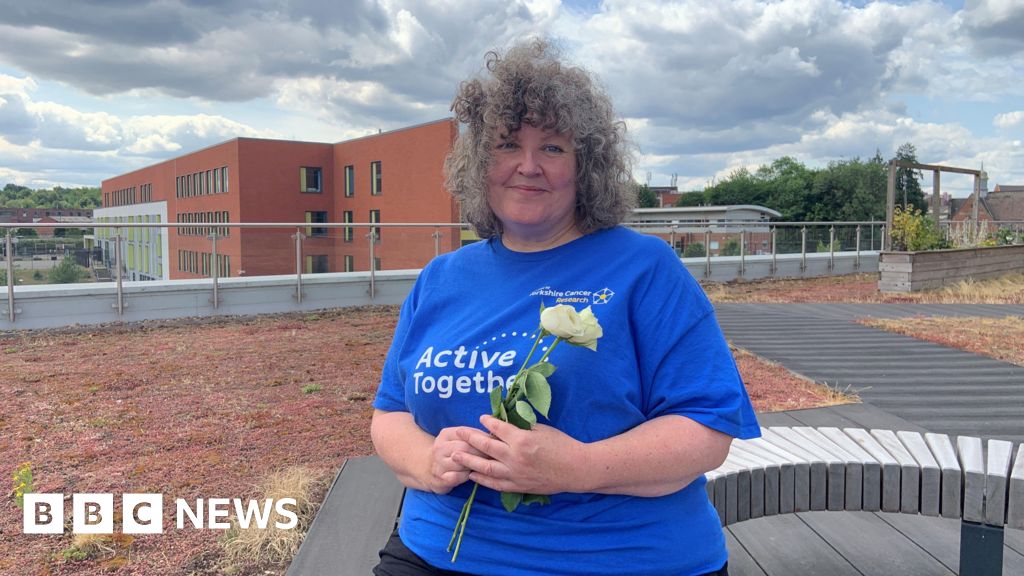
A pioneering cancer care scheme in Sheffield is transforming patient outcomes through personalized exercise, nutrition, and psychological support, with calls for a nationwide rollout.
Active Together, a groundbreaking initiative, has been credited with improving cancer survival rates in Yorkshire. The program offers personalized exercise routines, nutritional advice, and psychological support to cancer patients, aiding their recovery before and after major surgeries and treatments. Yorkshire Cancer Research, the organization behind the initiative, is now advocating for the scheme to be adopted by the NHS as part of its White Rose campaign.
Karen Nile, a 51-year-old resident of South Yorkshire, is among those who have benefited from the program. Diagnosed with stage two bowel cancer two years ago, Karen underwent an eight-hour surgery to remove her tumor, followed by six months of chemotherapy. “The scheme was profoundly life-changing, and we are so lucky in South Yorkshire as this isn’t offered anywhere else,” she said. “It prepared me for the biggest stage of my life and helped me recover from it.”
Transformative Care in Sheffield
Karen’s journey with Active Together began before her surgery. She was referred to the program, where a team of experts tailored exercises to her needs. “It was just absolutely wonderful, the exercises suited my pace with my pain levels,” she explained. Preferring the outdoors, Karen completed her exercises in woodland settings, which helped manage her anxiety about the upcoming surgery.
After her surgery, Karen’s recovery was swift. “Within two months of surgery, I was at a music festival. My journey didn’t finish there; it just helped me gain confidence enough to be able to go out and enjoy myself,” she shared. During her chemotherapy, Karen continued with the program, which provided her with exercise books that matched her pace. “There were days when I was absolutely exhausted, but the exercise and nutrition meant I could manage during the chemotherapy,” she noted. Today, Karen’s health is excellent, and she continues to utilize the tools and advice from the program.
Impact and Expansion Efforts
Yorkshire Cancer Research highlights that individuals in the county face higher rates of cancer diagnosis and mortality compared to other regions in England. The Advanced Wellbeing Research Centre at Sheffield Hallam University, which operates Active Together, reported a 10% improvement in survival rates for colorectal, lung, and upper gastrointestinal cancers.
“Patients told us overwhelmingly they didn’t want to go back to the hospital, so we deliberately designed this to be outside of hospital settings, in community venues so people can access services very easily,” said Dr. Stuart Griffiths, director of research, policy, and impact at Yorkshire Cancer Research.
The White Rose campaign by Yorkshire Cancer Research is pushing for the integration of pre-habilitation and rehabilitation for cancer patients into the NHS. The public can support this initiative by signing up on the charity’s website to send a symbolic white rose to the Health Secretary.
Looking Ahead
The success of Active Together in Sheffield has sparked discussions about its potential expansion across the UK. The program’s focus on holistic care—addressing physical, nutritional, and psychological needs—represents a shift in how cancer treatment is approached. By reducing hospital visits and empowering patients in community settings, the initiative not only enhances recovery but also improves quality of life.
As the White Rose campaign gains momentum, the possibility of a nationwide implementation of this innovative approach to cancer care becomes more tangible. The integration of such programs into the NHS could herald a new era in cancer treatment, where personalized care and community support are at the forefront.
For now, the people of South Yorkshire, like Karen Nile, continue to benefit from the life-changing effects of Active Together, setting a hopeful precedent for the future of cancer care in the UK.






